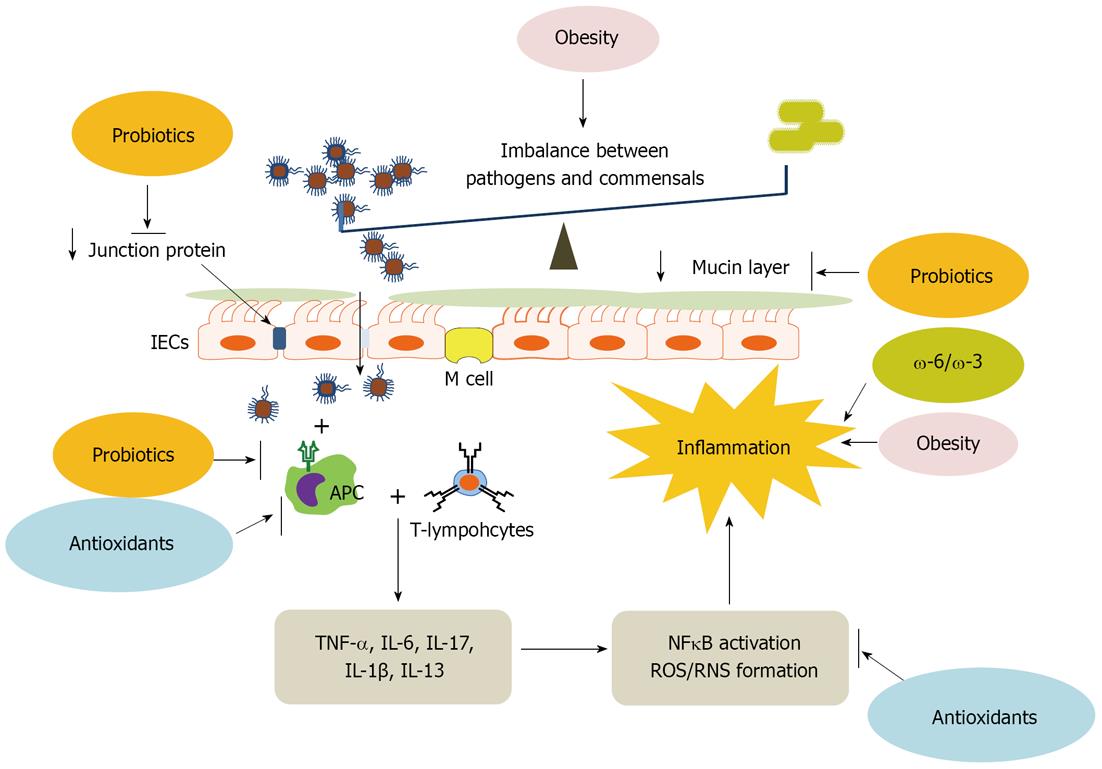Copyright
©2013 Baishideng Publishing Group Co.
World J Gastroenterol. Feb 21, 2013; 19(7): 994-1004
Published online Feb 21, 2013. doi: 10.3748/wjg.v19.i7.994
Published online Feb 21, 2013. doi: 10.3748/wjg.v19.i7.994
Figure 1 Disrupted intestinal homeostasis in ulcerative colitis and the role of nutritional factors.
Ulcerative colitis is a chronic inflammatory disease of the colon and rectum. Inflammatory responses are induced by the penetration of excessive pathogenic bacteria due to the increased population of pathogenic bacteria, the loss of junction proteins and thin mucin layer. Once pathogens are recognized by antigen-presenting cells (APC), T-lymphocytes produce pro-inflammatory cytokines activating inflammation-inducing nuclear transcription factor, nuclear factor (NF)-κB and generating reactive oxygen species (ROS) and reactive nitrogen species (RNS) which result in the inflamed intestine. Obesity is known to cause imbalances between pathogens and commensals as well as chronic inflammation. The increased ω-6 to ω-3 fatty acid ratio in the diet also accelerates inflammatory responses. Probiotics supplementation helps to maintain gut health by retaining tight junctions and mucin layer. Probiotics and antioxidants suppress immoderate immune responses, and ROS-induced inflammatory responses are moderated by antioxidants. TNF-α: Tumor necrosis factor-α; IL-1β: Interleukin-1β; IECs: Intestinal epithelial cells.
- Citation: Sung MK, Park MY. Nutritional modulators of ulcerative colitis: Clinical efficacies and mechanistic view. World J Gastroenterol 2013; 19(7): 994-1004
- URL: https://www.wjgnet.com/1007-9327/full/v19/i7/994.htm
- DOI: https://dx.doi.org/10.3748/wjg.v19.i7.994









